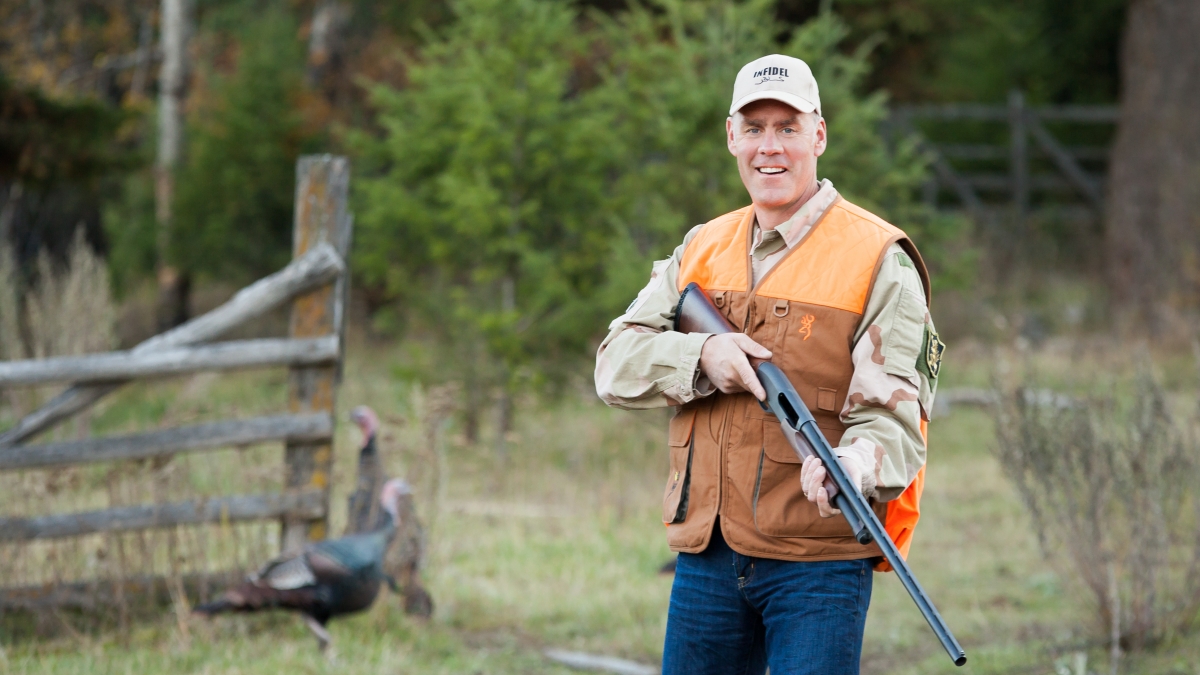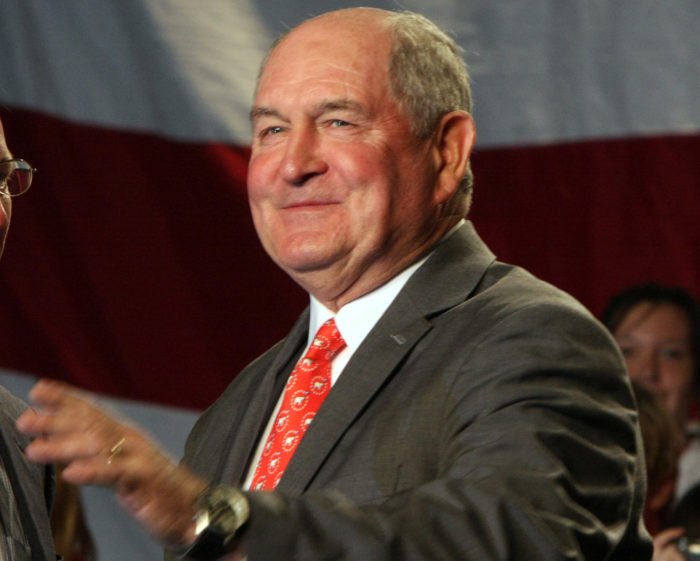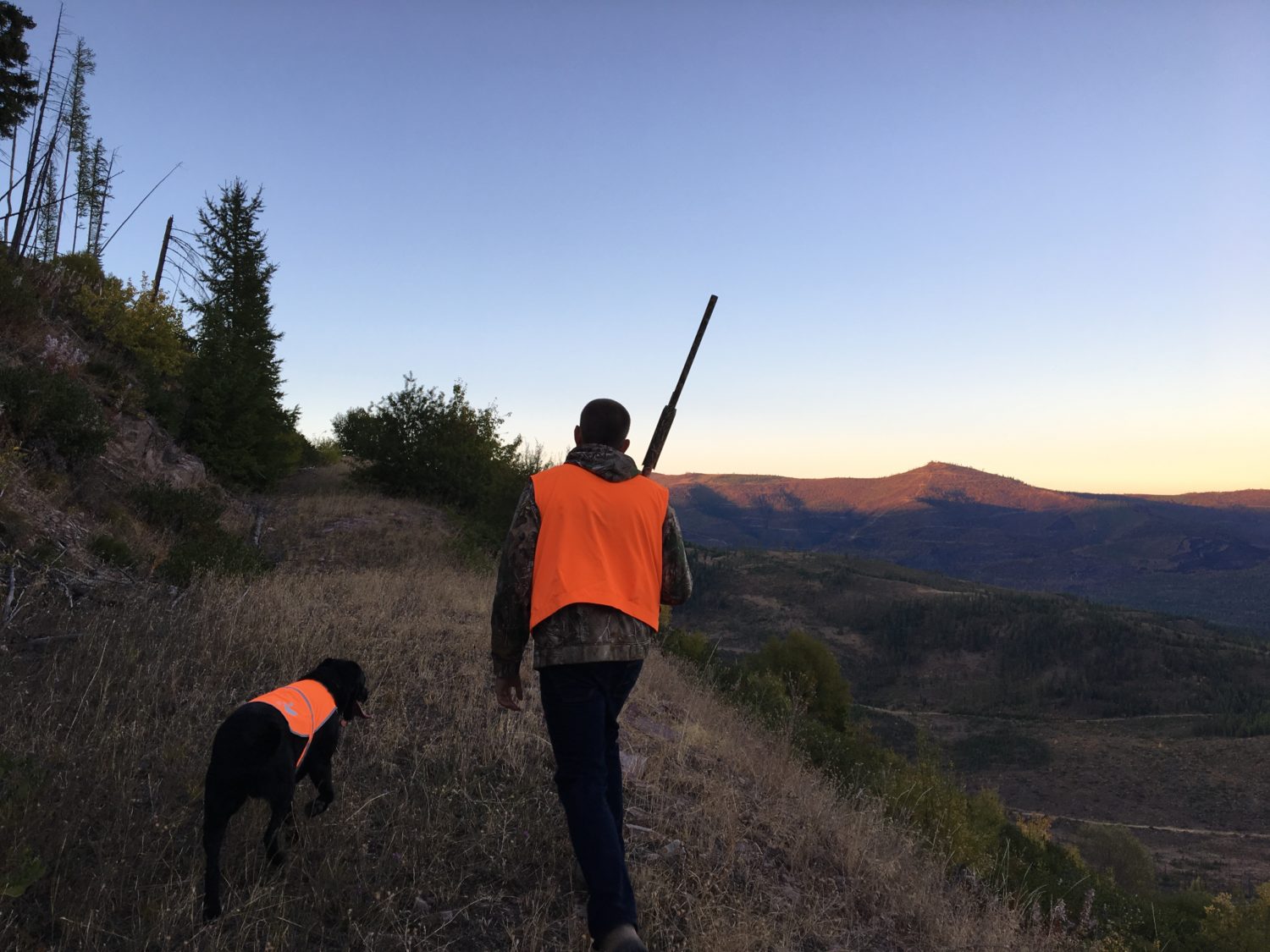To move forward for conservation, resistance can’t be the only tactic
Add “alternative facts,” fake news, and #resistance to the major trust issues that Americans have with government, and it’s easy to see why D.C. politics is one big gray area.
An example: Rep. Ryan Zinke has been clear that he cares deeply about public lands and funding for outdoor recreation access, especially as a lifelong hunter, and he is absolutely opposed to selling off or transferring national public lands to individual states. He’s on record supporting the expansion of our public lands—and access to them—by fully funding the Land and Water Conservation Fund. We based much of our support for Zinke as Secretary of the Interior on his track record of crossing party lines to vote for support of public lands.

Then, he didn’t. He voted along party lines on a House rules package that, among dozens of other proposed changes unrelated to conservation, would devalue federal public lands being considered for sale or transfer. The vote was procedural, and there is no indication that this action will be taken up by the Senate, but many began calling for Zinke’s head.
Critics ask how we can sit back and support him now. We’ve also been criticized for being optimistic about the nominee for Secretary of Agriculture, Sonny Perdue, an avid quail hunter who instituted statewide conservation plans and funding programs during his tenure as Governor of Georgia. No, we don’t think that prayers for rain are good agricultural policy, but there’s more good than bad in his track record.
They won’t side with us on every issue, but we’d like to see true sportsmen (ones with actual conservation accomplishments) lead the agencies that are responsible for conservation in our country. There are many difficult choices ahead, and we want the opportunity to be heard by those who have walked in our boots and share many of our values.

I don’t believe that Congressman Zinke’s actions were nefarious in that vote. But I can understand why hunters and anglers are frustrated with the games we see in Congress. Games like pretending that sage grouse conservation will undermine national defense readiness. Games like using obscure congressional authorities to reduce public input on land management decisions. Games like silencing scientists on climate change, yet decrying policies made by the last administration based on politics—instead of science.
It’s our job to see through the smoke screens, but our work will never be as simple as black and white.
As sportsmen, we have an opportunity to hold a middle ground and be reasonable in a time of upheaval Click To TweetWe need to know how to work with D.C. insiders in order to reach and educate the decision makers who hold your hunting and fishing opportunities in their hands. It is incumbent on us to make sure sportsmen and women are heard by the new administration and Congress, and we can do this better in their offices than we can shouting outside their windows. As sportsmen, we have an opportunity to hold a middle ground and be reasonable in a time of upheaval and extreme resistance.
But that doesn’t mean we can’t go on the defensive when we need to. That’s why we’ve come out in opposition to a congressional attempt to roll back your say in public lands management. That’s why we continue to provide you with opportunities to oppose public land transfer proposals in your state and in Washington. And as long as sportsmen and women put their trust in us, we’ll always be transparent about our actions.
We can be optimistic and remain vigilant. We can shake hands and shake our fists. It’s not a political game—it’s our duty.










The voters clearly wanted disruption of the status quo — and that can be scary. It’s also scary that Hillary Clinton could not or would not articulate a conservation vision and ignored blue collar fly-over country. Hat’s off to TRCP for chosing to wade into the gray areas of national conservation policy. Let’s all get ready for some polarizing fights on crucial issues. But as we know, Theodore Roosevelt and the inventors of American conservation faced far larger challenges and because of their unflinching advocacy and actions, we have a lot of tools to work with and countless cherished places to defend and expand.
I am not a “sportsman” but I am a backpacker, trail runner, hiker, backcountry skier, and avid user of America’s public lands. I do support hunting. I think it is a disgrace that a certain party in Congress is even considering selling off our public lands. They call it a land transfer to the states but anyone with any common sense knows that the states cannot afford to take on that responsibility and will have to sell off large sections of land to private interests. Wildfire season alone would bankrupt some western states. Some states claim that it is costing their taxpayers since there is federal land in their boundaries and they cannot benefit from exploiting it or developing it. I say those states should just redraw their state lines to exclude the federal land. Problem solved! Even better, redraw all state lines to exclude federal land and rename this land “Wild America Territory”. Put it completely under the jurisdiction of the federal government so the states do not have to spend a penny on it.
My state (Ohio) has roughly 1% federal land. The Federal government and our governor has opened this and state parks to drilling (oil and gas). It’s why Ohioans choose to recreate in neighboring states. If you have thousands or millions of acres of public lands, cherish it, because they will take it from you, sooner or later, piece by piece.
A perfectly reasonable analysis flawed by one unnecessary line of snark showing your contempt for anybody holding a religious conviction.
Don’t get caught up in left, right. Watch what they do, or more importantly, what they propose.
Vigilance
I hear it over and over again from the Government, that we do not have the money to run and maintain our public lands. Living in Nevada and seeing multinational gold mining companies destroy the largest migrating mule deer herd in Nevada this is what I have learned.
First the General mining act of 1872 must be changed. Allowing minerals to be taken from U.S. Public lands without paying royalty fees is totally unacceptable and needs to be removed and/or reworked. Giving away a unrenewable national resource to foreign multinational corporations that is used to leverage our economy is stupid.
Second Corporations that destroy water, land, wildlife or harmed citizens must be properly punished and banned from working in the United States. Government officials found to push policies through and profit from these types of unethical actions with substantial prior knowledge must be prosicuted. Not only is this turning into a national security issue it effect the economics of family’s who fight Heath related fallout from this type of negligence. Clean water air and food is becoming much more important than a small group of Wall Street profiteers.
EPA can no longer make Superfund sites that hand bill for cleanup to tax payers allowing corporations to skip out on the bill. This type of lose should no longer be acceptable as a tax write off loophole. Corporation owners can not file bankruptcy and walk away free and clear. I will say it again the people in charge must be prosecuted for their negligence. What happened in the gulf with the BP cleanup is still being felt by the residence and businesses.
Government will no longer pay for ferel horses that are running havoc across the rangelands. Not only is it no longer feasible to maintain this financial black hole, but horses are in direct compitition with wildlife for dwindling resources such as water and food.
In Nevada gold mines use more water in one day than all the residence in the state. Right now state officials want to put meters on private wells yet the mines pay absolutely nothing and waste a incredible amount of this Vital resource.
Private corporation Will no longer be able to collect ranching and farming welfare that rightfully needs to specifically dedicated heritage ranchers and farmers who feed our nation.
In conclusion, we cannot expect to maintain our public lands if we are giving it away. Because mining creates so much pollution and damage we need to asses how important that mineral is to mine. I am aware we will always need to mine mineral, but it must be done with great care and consideration for necessity. Horses got to go and paying private citizens, and certain politicians with ranches, to feed them for profit is just plain stupid. The EPA, well I don’t even know we’re to start with this mess, but one things for sure, poisoning for profit is unacceptable.
One problem that I see is that regardless of how Rep. Zinke voted in the past, he’s definitely going to vote as directed by the House GOP leadership NOW, especially in light of his nomination to head Interior. And sadly, I would cut loose any consideration of his past positions & voting record because once he’s in the Administration, there is absolutely NO room for ANY position other than that of the White House. While I would like to think that as a REAL sportsman he’d actually have input as to how the Department does its job, I’m enough of a realist to know that the extractive industries and others who really don’t give a damn about public lands, clean water, salmon runs, healthy elk herds, etc. are the ones who call ALL the shots these days at 1600 Pennsylvania Avenue. BUT…
Those groups that are – shall we say – more representative of Trump voters have a DUTY to use whatever influence they have to block these crazy attempts to undermine a century’s worth of environmental/conservation gains. For example, when Pres. G.W. Bush’s administration was planning to gut federal wetlands protections in light of SCOTUS’s SWNCC & Rapanos decisions, it was the leadership of DUCKS UNLIMITED (who had access to the Oval Office) who advocated against the action and explained their reasoning to the President face-to-face. It’s up to TRCP and its member organizations to step up once again – and BIG TIME – because this time the man in the Oval Office isn’t an outdoorsman. By any stretch.
Can we get conservative sportsmen to pray for the mercury in our fish to be returned to the coal where it came from? The list of mercury warnings and consumption limits that Texas Parks and Wildlife has assigned to game fish in Texas coastal waters is depressing and infuriating. Based on the actions of Scott Pruitt and others, I’m starting to wonder if mercury poisoning of our waters and fish is a new conservative family value. Eight new lakes added to Oklahoma’s mercury contamination list in 2016. That makes 40 lakes statewide. The same Scott Pruitt who sued the EPA over Mercury and Air Toxics Standards is slated to run the EPA and “Trump digs coal”. Wake me up when the nightmare is over.
#PrayForOurFish